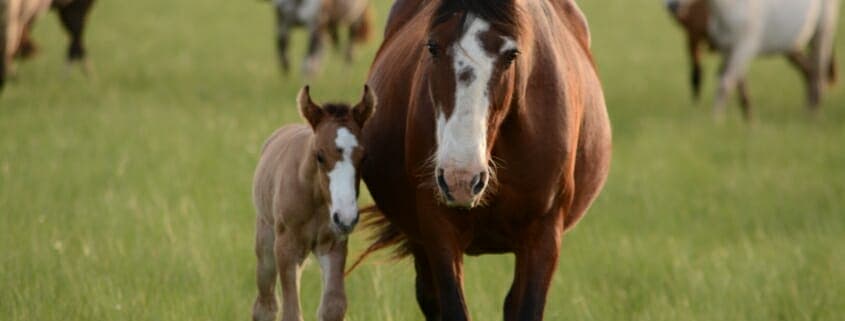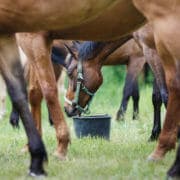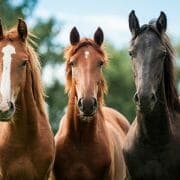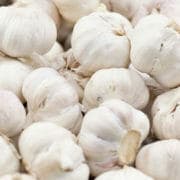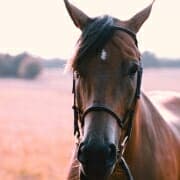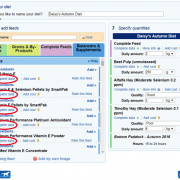Retained Placenta and Selenium Deficiency
Do you know about the relationship between retained placenta and selenium deficiency in horses?
Retained placenta is more than just bad luck, and a lot of it comes down to one little mineral – selenium.
The cattle industry agrees. Professor Michael Lee of the University of Bristol spoke about selenium at an animal nutrition conference at the University of New England. Listed at the top of his list of symptoms of selenium deficiency in ruminants was retained placenta. Check out a sneak peek of his slides below.
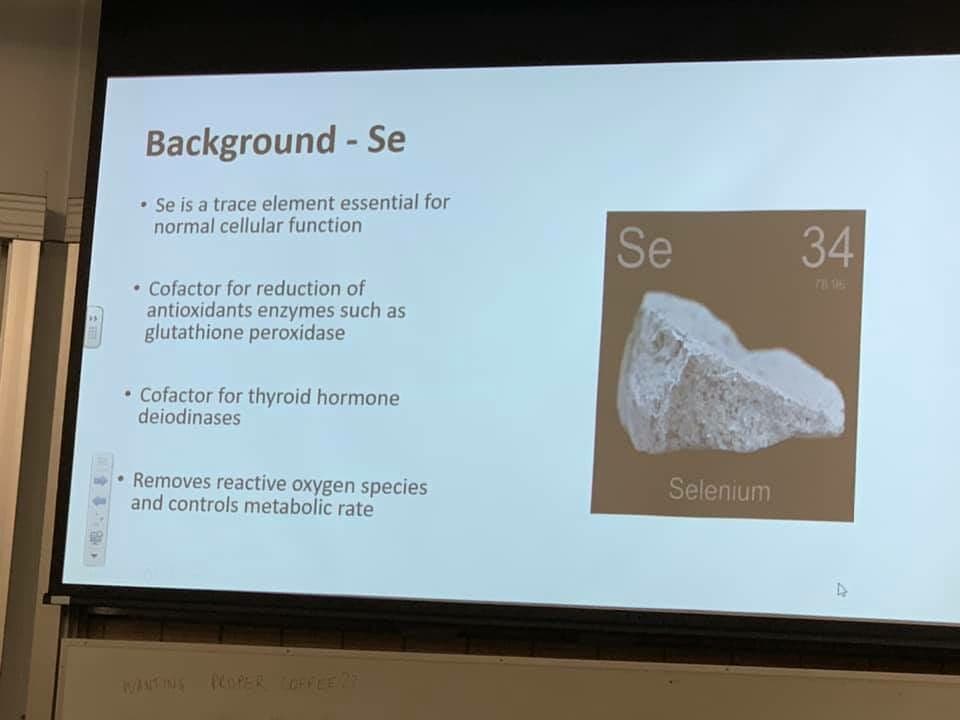
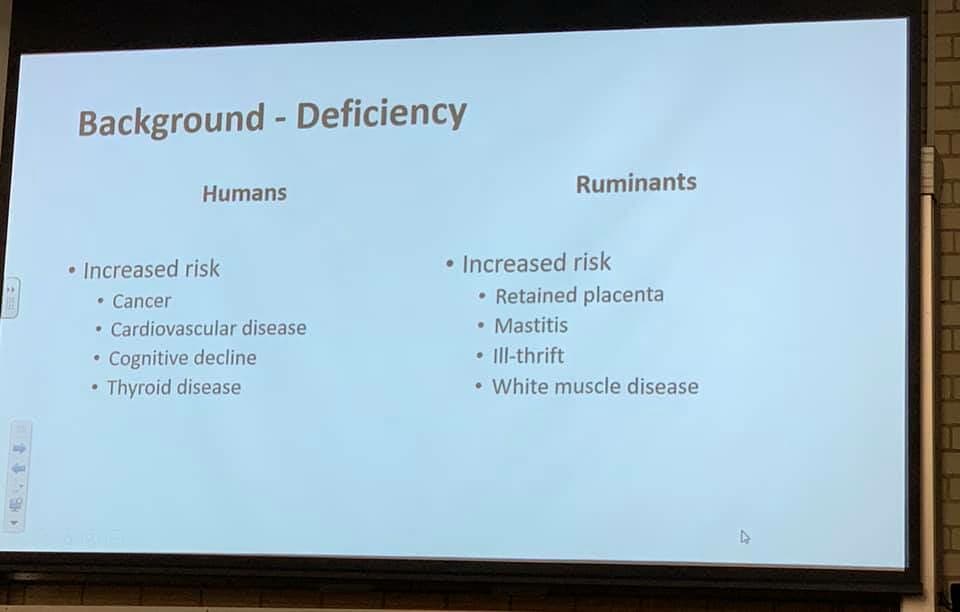
And this is certainly what we see in horses, too.
Retained placenta as a widespread issue is almost only ever seen on breeding farms that do not supplement with selenium. In one case, a farm had more than 100 standardbred broodmares, none of which were supplemented at all during pregnancy, and retained placenta was occurring in 25% of the mares. That means one in every four mares were experiencing this potentially life threatening complication.
We suggested that they if they supplemented with selenium (as part of an overall balancer pellet), this shouldn’t be such an issue. They decided to experiment and gave half of the mares the balancer pellet, and the other half they left un-supplemented. The results were clear – the supplemented mares has one mare in 60 with retained placenta. That’s less than 2%, a big reduction from 25%.
The un-supplemented mares had two with retained placenta within the first four mares to foal. That was enough to convince the farm of the relationship between retained placenta and selenium deficiency in horses. They quickly decided to put all of the mares on the balancer pellet.
The interesting thing was that the incidence of the retained placenta dropped almost immediately in this group of mares who were initially un-supplemented.
The nutrition of pregnant mares is so important. This is just one more reason you should pay close attention to mineral nutrition, especially because selenium is a mineral that is often low in forages and is therefore often deficient in diets.
For more about feeding pregnant mares click here to read our post ‘Feeding Pregnant Mares’.
Need to try FeedXL for your horse?
Get EVEN MORE practical and personalised feeding guidance when you sign up to FEEDXL.
Do you have a question or comment? Do you need help with feeding?
We would love to welcome you to our FeedXL Horse Nutrition Facebook Group. Ask questions and have them answered by PhD and Masters qualified equine nutritionists and spend time with like-minded horse owners. It’s free!
Click here to join the FeedXL Horse Nutrition Facebook Group

